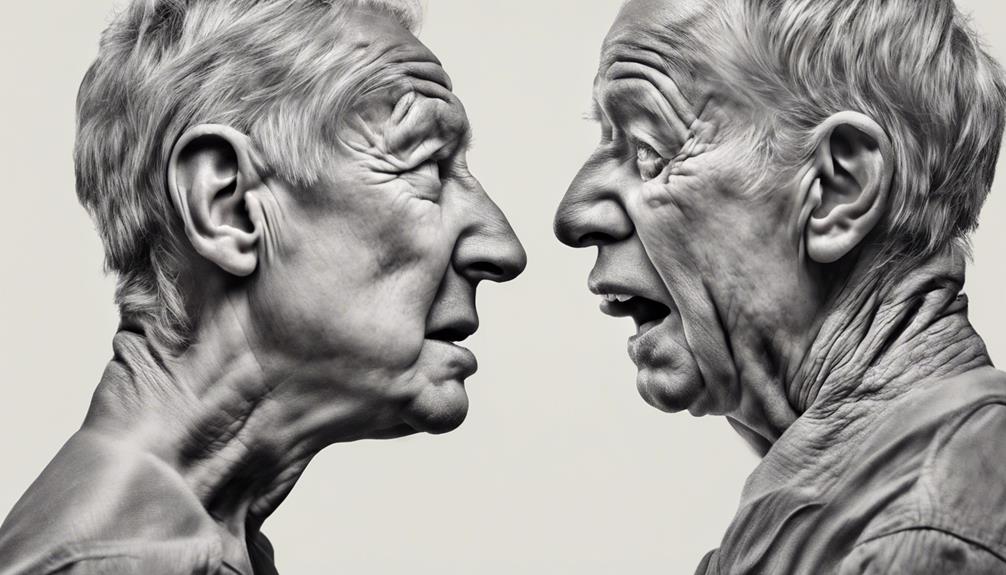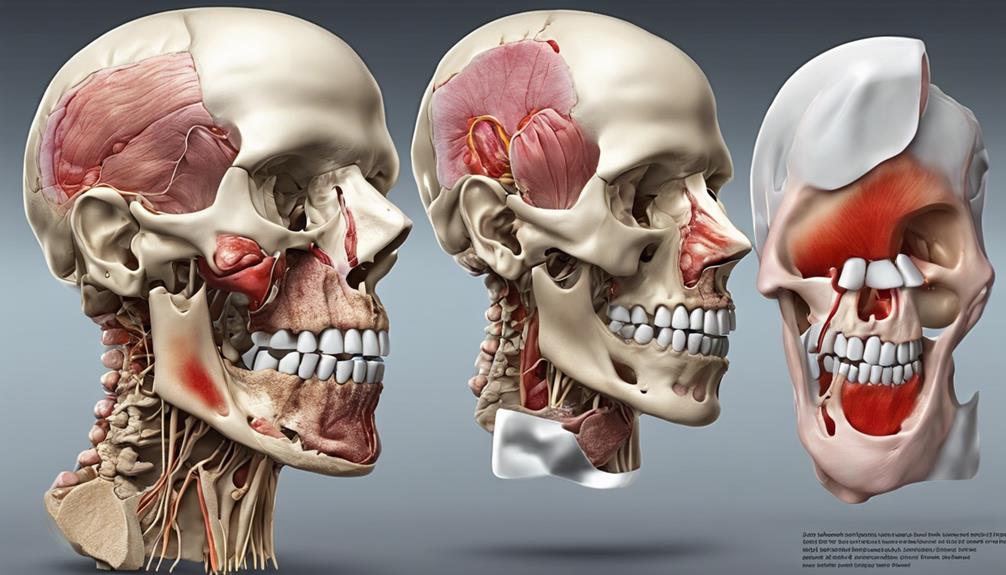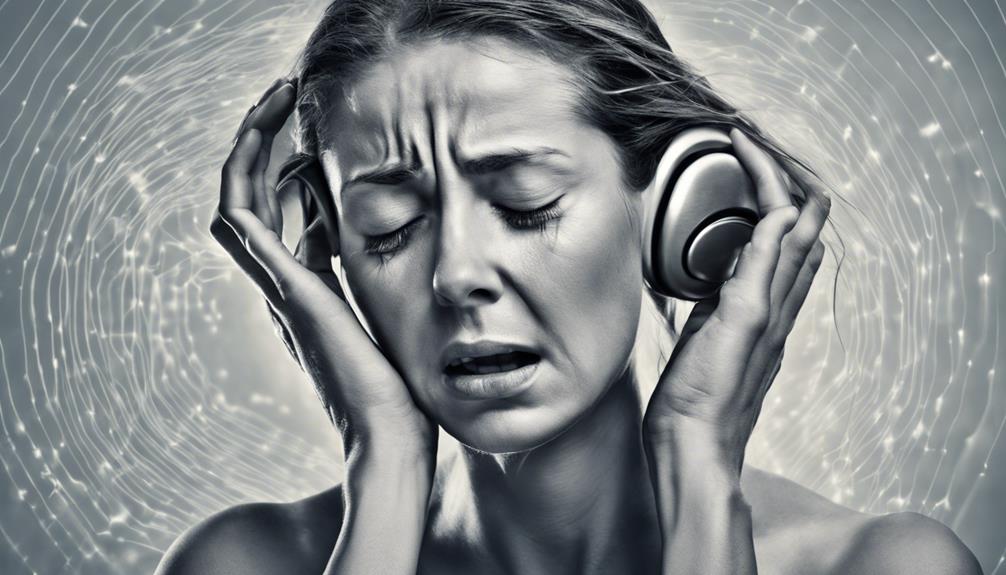In investigating the intricacies of health during these unprecedented times, one overlooked issue is the potential link between Covid-19 and hearing loss.
The subtle yet profound impact that the virus can have on our auditory system is a topic that warrants attention and consideration.
Understanding the mechanisms at play and the implications for our long-term well-being is essential for safeguarding our health in the face of this global health crisis.
Key Takeaways
- Covid-19 can lead to sudden sensorineural hearing loss post-recovery.
- Auditory symptoms like tinnitus and vertigo are common in Covid-19 patients.
- Timely intervention is crucial to prevent permanent virus-induced hearing damage.
- Long-term effects of Covid-19 include persistent hearing loss requiring prompt management.
Covid-19 and Hearing Loss Connection
In our research, we've found a significant correlation between COVID-19 infection and the development of sensorineural hearing loss in a substantial proportion of individuals post-recovery. Studies have revealed that COVID-19 can lead to hearing issues in up to 65.5% of post-COVID-19 patients.
This hearing loss can vary from mild to profound, affecting different frequencies. Otoacoustic emission tests have shown a notable decrease in responses among COVID-19 patients compared to control groups, indicating impairment in the function of the auditory nerve.
Additionally, auditory brainstem evoked potential results have displayed prolonged wave latencies and increased abnormalities in individuals post-COVID-19, suggesting damage along the auditory pathway. Symptoms such as hearing loss and tinnitus are prevalent in COVID-19 patients, impacting around 50% and 77% of individuals, respectively.
Understanding these connections is crucial in managing the auditory consequences that may arise following COVID-19 infection.
Symptoms of Covid-19 Related Hearing Loss

Sudden sensorineural hearing loss (SSNHL) is a notable symptom associated with COVID-19 related hearing issues. Individuals affected by COVID-19 may experience a range of auditory symptoms, including tinnitus, which presents as a constant ringing or buzzing in the ears.
The severity of hearing loss due to COVID-19 can vary from mild to profound and may impact both ears. In addition to hearing issues, some patients may also encounter vertigo, dizziness, and balance problems. These symptoms suggest possible nerve damage related to COVID-19, affecting the auditory system.
Reports indicate that the virus can harm the nerves crucial for hearing function, leading to a combination of symptoms that extend beyond just hearing loss. Understanding these symptoms is essential for timely diagnosis and management of COVID-19 induced hearing issues, emphasizing the need for comprehensive evaluation in individuals presenting with such auditory manifestations.
Risk Factors for Covid-19 Induced Hearing Loss
Individuals experiencing COVID-19 related hearing issues may face various risk factors contributing to the development of hearing loss, ranging from mild to profound, as highlighted by the CDC.
Factors that increase the risk of COVID-19 induced hearing loss include:
- Virus-associated hearing loss: Contracting COVID-19 can lead to permanent hearing loss if the condition isn't promptly addressed.
- Nerve damage: The virus can damage the nerves crucial for hearing, potentially causing long-term issues.
- Inflammation: Inflammation triggered by the virus can harm the cochlear nerve, which is essential for auditory function.
- Prompt treatment: Immediate intervention is crucial as hearing loss can manifest as a symptom of COVID-19 and may require urgent treatment for effective recovery.
- Recovery: Timely management of COVID-19 induced hearing loss is vital for a better chance of recovery and minimizing long-lasting effects on hearing health.
Protecting Your Hearing During Covid-19

Amid the challenges posed by the COVID-19 pandemic, safeguarding one's hearing health has become increasingly crucial to mitigate potential adverse effects on auditory function. The widespread adoption of mask-wearing as a preventive measure against COVID-19 has inadvertently led to communication difficulties, where muffled voices and obscured facial cues impede effective interactions, particularly for individuals with hearing impairments. Furthermore, the stress, isolation, and quiet environments enforced by pandemic measures can exacerbate existing hearing issues, emphasizing the need for proactive steps to protect one's hearing.
Public health efforts promoting mask-wearing have significantly impacted communication dynamics, necessitating a greater reliance on lip-reading to compensate for diminished auditory input. This shift can pose challenges in understanding speech, especially for those already experiencing hearing loss. Given that hearing loss can profoundly affect communication and relationships, prioritizing measures to safeguard hearing health during the COVID-19 pandemic is paramount. By being mindful of these factors and taking proactive steps to protect our hearing, we can navigate these challenging times with a greater sense of auditory well-being.
Long-Term Effects of Covid-19 on Hearing
The impact of Covid-19 on hearing health extends beyond immediate concerns, with studies indicating a notable percentage of individuals experiencing lasting hearing loss post-recovery from the acute phase of the virus. Long COVID can lead to persistent hearing loss, lasting three or more months after recovering, with implications for quality of life. Here are some key points to consider regarding the long-term effects of Covid-19 on hearing:
- Studies suggest a percentage of people experience hearing loss months after recovering from acute COVID-19.
- Long COVID can lead to persistent hearing loss as a symptom lasting three or more months post-recovery.
- Hearing loss is more likely to occur than tinnitus as a long-term effect of COVID-19.
- COVID-19 may accelerate existing hearing issues, impacting the quality of life for individuals.
- Early detection and treatment of COVID-19 related hearing complications are crucial for recovery and management.
Understanding these implications is vital for ensuring timely intervention and effective management of post-Covid hearing complications.
Frequently Asked Questions
Why Did My Hearing Suddenly Go Away?
Our hearing suddenly went away due to various factors, including damage to nerves involved in hearing. Seeking immediate medical attention is crucial in such cases to enhance chances of recovery.
Inflammation from viruses like COVID-19 can harm the cochlear nerve, leading to sudden and potentially permanent hearing loss. This condition may be reversible with prompt treatment from ear, nose, and throat specialists.
It's essential to address sudden hearing loss promptly to maximize recovery potential.
How Long Does It Take to Regain Hearing After Ear Infection?
We've seen that the recovery time for hearing loss post-ear infection varies depending on the severity. Mild cases may see hearing return within days to a week, while severe infections could take weeks or even months. Timely and proper treatment is crucial for a quicker recovery.
Regular monitoring by a healthcare provider helps track progress and address any lingering issues. It's essential to follow medical advice for optimal outcomes.
Can Sudden Hearing Loss Be Restored?
Yes, sudden hearing loss can often be restored, especially with prompt treatment. Seeking immediate care from an ear, nose, and throat doctor is crucial for increasing the likelihood of recovery. Treatment options like corticosteroids are effective in reducing inflammation in the inner ear, potentially restoring hearing.
Combining different therapies may enhance the chances of regaining lost hearing. Referral to specialized services for proper diagnosis and treatment is essential for restoring sudden hearing loss.
Why Can't I Hear Properly Suddenly?
We may experience sudden hearing loss due to various factors, such as infections, blockages, or nerve damage. This can lead to difficulties in hearing properly. Seeking immediate medical attention is crucial to identify the underlying cause and initiate appropriate treatment.
Quick intervention can often improve outcomes and restore hearing function. It's essential to consult with healthcare professionals to address sudden hearing issues effectively.
Conclusion
In conclusion, the link between COVID-19 and hearing loss is a concerning reality that can't be ignored. By recognizing the symptoms, understanding the risk factors, and seeking prompt medical attention, we can protect our hearing from the potential long-term effects of the virus.
It's crucial to remember that early intervention and proper treatment can make a significant difference in the outcome of COVID-related hearing complications. Let's prioritize our hearing health as we navigate the challenges of this pandemic.











